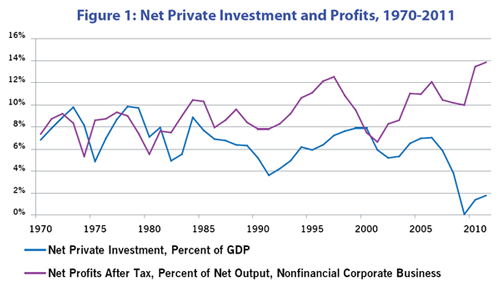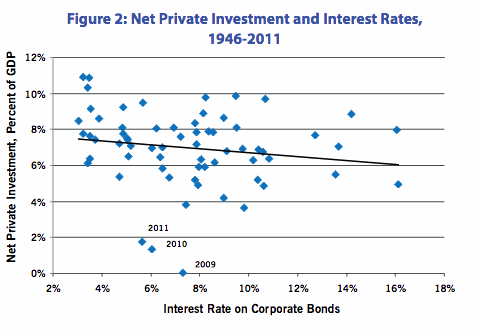The reproductive health police are at it again, and this time they’ve got the gender and sexuality cops with them. Despite the CDC reporting a decline in teen pregnancy across ethnic groups, public health and privately funded campaigns are popping up across the U.S. aimed at chastising, shaming, and blaming teenage mothers.
And now, the city of Chicago has gotten in on the act. Not satisfied with the traditional images of cheerleading teenage mothers with babies strapped to their chests, or wailing toddlers scolding their mothers for being too poor or too single, or even pop music icons who assure young women that motherhood ‘sucks’ even more than high school, the city of Chicago has decided to get creative. The Chicago Department of Public Health has created a series of posters featuring shirtless young men with apparently pregnant bellies – below the caption “Unexpected?”


Ok, I get it. The campaign was designed to communicate the fact that most teen pregnancies are, yes, unexpected, and that teen fathers should bear an equal responsibility for said pregnancies. But as someone working at the interstices of narrative, health, and social justice, I am less concerned with wondering if teen pregnancy is ‘bad’, or even if shame and/or shock are effective motivators for behavior change (which I would argue they are not, check out Brené Brown’s eloquent argument). What concerns me is what other work such images are doing. In other words, what additional cultural stories is this campaign telling, and are those narratives socially just or unjust?
As this fantastic take-off from the Media Literacy Project shows, the primary problem with the Chicago campaign is its deeply trans-phobic narrative:
In the frame of the advertisers, the pregnant bellies in the ads are solely female while the rest of the body is solely male. The contrast is supposed to cause discord in the viewer, yielding feelings that the image is “disturbing” or “unexpected,” as the ads say. However, sex and gender are much more complicated than the advertisers understand. Transgender boys and men can become pregnant. Calling their bodies disturbing perpetuates a culture of ignorance, prejudice, and violence against transgender people.
The truth is, bodies which do not look traditionally ‘female gendered’ can and do become pregnant (consider the much publicized story of Thomas Beattie, for instance, a transgender man who bore three children) while bodies which do look traditionally ‘female gendered’ sometimes can or do not.
Philosopher Judith Butler asserted that gender is nothing more than a series of repetitive performances; behaviors which, in cis-gendered (not transgendered) people, are often so subconscious as to feel ‘natural.’ But simply consider that the gender-coding of many such behaviors have changed over time. Hairstyles, clothing, and work-home-balance are all easy examples. Requiring at the very least a working uterus, pregnancy is one type of public ‘performance’ that still appears ‘naturally female.’ Therefore, ‘male pregnancy’ can be a subversive act, as with the work of cyber-artists Virgil Wong and Lee Mingwei, where, as feminist science scholar Donna Haraway would say, one ‘queers what counts as nature.’
But that’s not what is going on here. As with the broadly comic absurdness of male pregnancy in films like Arnold Schwarzenegger’s Junior, this anachronistic Chicago campaign actually reinforces a traditional gender binary while essentializing pregnancy as a function of only cis-gendered female bodies. In doing so, the campaign defeats its own stated purpose. By looking at these posters, cis-gendered boys won’t feel like pregnancy can happen to them. Rather, they will scoff, or laugh at the ‘absurdness’ of male pregnancy, reassured that their (utterly and fixedly ‘masculine’) bodies are ‘safe’ from such conditions. More devastatingly, the cis-gendered general public looking at these images will have their own prejudices and expectations about male pregnancy reinforced: as something ‘unexpected,’ shocking, and ‘unnatural.’
Additionally, like other individual-level ‘shaming and blaming’/’shocking’ campaigns, this Chicago anti-teen pregnancy series deflects attention from more systemic understandings and structural changes: from finding funding for affordable and accessible reproductive health care, to anti-poverty work, to programs which support LGBTQ youth. While they may satisfy the need for a ‘moral panic’ among us middle-aged people as we ‘clutch the pearls and think of the children,’ what such anti-teenage pregnancy campaigns don’t do is actually increase the well being of our young people – be they male or female, cis- or trans-gendered.
Cross-posted at Adios Barbie.
Sayantani DasGupta is a faculty member in Narrative Medicine at Columbia University. She is the editor of Stories of Illness and Healing: Women Write their Bodies, co-authored The Demon Slayers and Other Stories: Bengali Folktales, and authored Her Own Medicine: A Woman’s Journey from Student to Doctor.










